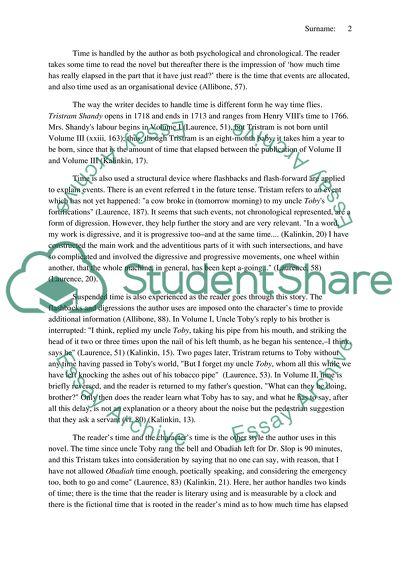Cite this document
(“Book Review Essay Example | Topics and Well Written Essays - 3000 words”, n.d.)
Retrieved de https://studentshare.org/literature/1639659-an-essay-on-the-novel-the-life-and-opinions-of-tristram-shandy-gentleman
Retrieved de https://studentshare.org/literature/1639659-an-essay-on-the-novel-the-life-and-opinions-of-tristram-shandy-gentleman
(Book Review Essay Example | Topics and Well Written Essays - 3000 Words)
https://studentshare.org/literature/1639659-an-essay-on-the-novel-the-life-and-opinions-of-tristram-shandy-gentleman.
https://studentshare.org/literature/1639659-an-essay-on-the-novel-the-life-and-opinions-of-tristram-shandy-gentleman.
“Book Review Essay Example | Topics and Well Written Essays - 3000 Words”, n.d. https://studentshare.org/literature/1639659-an-essay-on-the-novel-the-life-and-opinions-of-tristram-shandy-gentleman.


